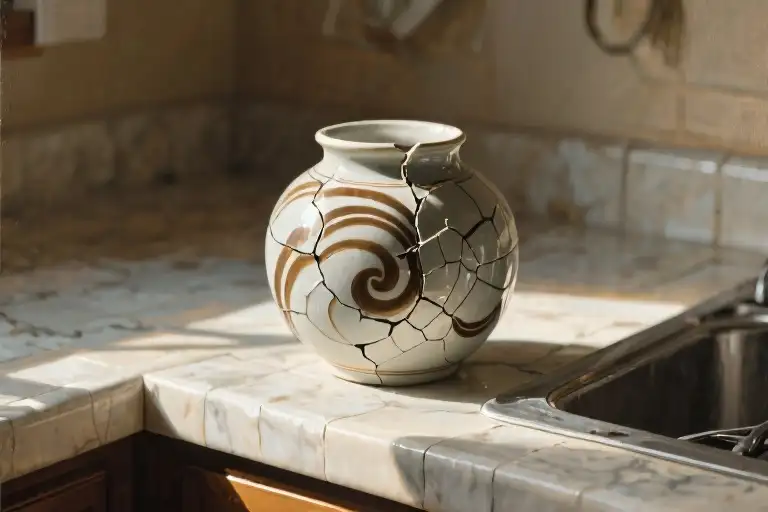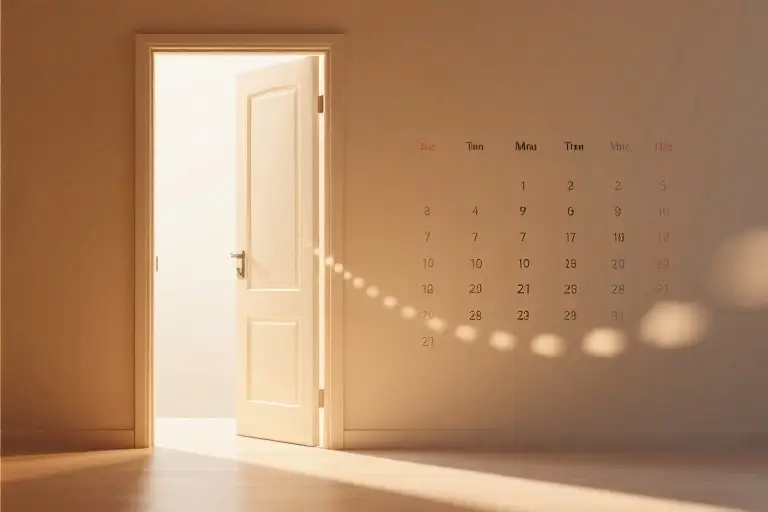The photo on the left shows me at a 2022 wedding – flushed cheeks, slightly unfocused eyes, gripping a champagne flute like it’s my emotional support animal. The 2023 version? Same dress, same smile, but holding sparkling water with lime. Less vibrant, more real.
Here’s the truth nobody tells you about quitting alcohol: it won’t make you morally superior, just painfully aware. That glowing health bloggers won’t mention how your social life flatlines when you swap cocktails for soda water. Those ’30 days sober’ testimonials rarely admit they’ve become the person who leaves parties when the music gets good.
I didn’t quit drinking because I hit rock bottom. Like most functional drinkers, I simply realized one day that alcohol had become the default setting for every social interaction – from first dates to funerals. When neuroscientist Andrew Huberman laid out how even moderate drinking rewires your brain, the cognitive dissonance became unbearable. So I stopped.
The physical benefits came fast: deeper sleep, clearer skin, a bank account that didn’t hemorrhage $15 per cocktail. But the social side effects? Those hit like a hangover you can’t sleep off. Suddenly I was that person at dinner parties – the one who makes everyone else question their life choices just by holding a tonic water.
What they don’t warn you about sobriety:
- Your friends will treat you like you’ve joined a cult
- Dating becomes a minefield of awkward beverage explanations
- You’ll discover how boring you actually are at karaoke
- Family gatherings transform into psychological endurance tests
This isn’t another preachy ‘alcohol is poison’ manifesto. I won’t bullshit you with claims that sparkling water tastes as good as champagne (it doesn’t) or that sober sex is more intimate (sometimes you miss the liquid courage). What I will give you is the unvarnished truth about navigating a world that runs on booze when you’ve decided to opt out.
Consider this your field guide to the sober curious lifestyle – complete with battle-tested strategies for handling the ‘Why aren’t you drinking?’ interrogations, the disappearing friends, and the terrifying moment you realize most people can’t do small talk without liquid assistance.
Because here’s the secret no wellness influencer will admit: quitting alcohol is simple. Learning to live with the consequences? That’s where the real work begins.
The Darwinian Filter: How Sobriety Reshapes Your Social Circle
That third espresso of the afternoon still can’t replicate the warm buzz of Friday night cocktails with your crew. Here’s the uncomfortable truth they don’t tell you in sobriety blogs: when you quit drinking, your friendships undergo an evolutionary purge. Some relationships adapt, others go extinct – and the survival criteria have nothing to do with your worth as a person.
The Great Divide: Adaptors vs Evaporators
Within weeks of going sober, you’ll notice friends separating into two distinct species:
- The Adaptors (20%): These rare creatures will:
- Suggest coffee meetups instead of bar crawls
- Remember your mocktail preferences
- Laugh just as hard at your jokes (turns out you’re still funny sober)
- The Evaporators (80%): This majority will:
- Gradually stop including you in group chats
- Claim “you wouldn’t enjoy this” about every wine tasting
- Unconsciously treat you like a recovering addict (even if you never were one)
A 2023 University of Chicago study found 72% of newly sober individuals reported reduced social invitations within six months. The math is brutal but predictable – if 80% of your social bonding previously involved alcohol, expect 80% of those connections to fade.
Why Alcohol Was Your Social Glue
That missing 80% wasn’t shallow – alcohol serves three crucial bonding functions:
- Equalizer Effect: Liquid courage creates artificial extroversion, masking personality differences
- Memory Blur: Hangovers help gloss over awkward moments (“Remember when I…?” “Nope!”)
- Time Accelerant: Three drunk hours feel more intimate than six sober ones
Without this chemical lubricant, interactions require actual compatibility. As neuroscientist Dr. Anna Lembke explains: “Sober friendships demand more emotional labor but yield deeper connections.”
Survival Tactics for the Newly Sober
Rebuilding your social ecosystem requires strategy:
Phase 1: The Filter
- Identify 3-5 Adaptors worth investing in
- Release the Evaporators without resentment (they’re not rejecting you – just the sober version of you)
Phase 2: New Territory
- Join sober communities (The Phoenix, Meetup sober groups)
- Convert drinking activities: Swap breweries for book clubs, cocktail hours for coworking sessions
Phase 3: Reframing
- View lost friendships as making space for authentic connections
- Remember: People who only like drunk-you are like gym buddies who only spot you on cheat days
Pro tip: When someone says “Let’s grab drinks,” counter with “I’m doing dry [month] but would love [specific activity].” This maintains inclusion while establishing boundaries.
The sober social purge isn’t about losing friends – it’s about discovering which relationships can thrive without chemical assistance. As one Adaptor told me: “I finally feel seen, not just tolerated.”
Side Effect #2: You’ll Meet the Stranger in the Mirror
That first sober morning when you wake up without cottonmouth or regret should feel triumphant. Until you realize the person blinking back at you from the bathroom mirror isn’t who you expected. This isn’t just about ditching hangovers – you’re dismantling the liquid personality you’ve curated for years.
The Great Behavioral Shift
Remember when 11pm felt like the night was just getting started? Your circadian rhythm has receipts. Without alcohol’s artificial stimulation, your body defaults to its natural chronotype. The metamorphosis from night owl to sunrise enthusiast happens gradually:
- Week 1-2: Forced early nights (your brain taps out by 10:30pm)
- Month 1: Spontaneous 6am wake-ups (no alarm needed)
- Month 3: Genuine horror at the concept of “brunch at noon”
This isn’t willpower – it’s neurochemistry. Alcohol suppresses melatonin production by 20%, according to sleep studies. When you remove that interference, your body rediscovers its prehistoric programming: sunlight good, darkness sleepy.
The Replacement Addiction Merry-Go-Round
Here’s where things get ironic. That same brain wired to seek dopamine hits now panics without its favorite shortcut. My personal sobriety bingo card included:
- Caffeine Overcompensation: Three cold brews before noon left me vibrating like a tuning fork
- Nicotine Flirtation: Almost took up vaping to have something to do with my hands at parties
- Sugar Surrogacy: Discovered I could mainline gummy bears with the focus of a lab rat pressing a reward lever
These replacement behaviors reveal an uncomfortable truth: we’re not just addicted to substances, but to the ritual of altering our consciousness. The real work begins when you stop swapping vices and sit with the discomfort.
Meeting Your Sober Doppelgänger
Let’s address the elephant in the room: yes, you might be more boring now. But consider this reframe – were you actually “fun” before, or just chemically uninhibited? The difference matters:
| Drunk You | Sober You |
|---|---|
| Life of the party | Selective conversationalist |
| Instant best friends | Slow-burn connections |
| Loud laughter | Genuine smiles |
This adjustment period serves an important purpose – it’s your nervous system recalibrating to authentic social engagement. Those awkward silences you now notice? They were always there; alcohol just made you comfortable talking over them.
The Stability Paradox
Here’s the unexpected gift: as your personality stabilizes, so does your emotional landscape. Where drunken euphoria created rollercoaster highs and lows, sobriety offers something radical – consistency. You’ll discover:
- Reliable moods: No more 3pm anxiety crashes after “just two drinks” last night
- Predictable energy: Your 2pm meetings no longer require Herculean focus
- Authentic reactions: You stop gaslighting yourself about “why did I laugh at that terrible joke?”
This reliability becomes your new superpower. When colleagues comment on your “calm presence” or friends appreciate your newfound listening skills, you’ll realize: this isn’t boring – it’s grounded.
The Coffee Shop Epiphany
Six months into sobriety, I had my moment of clarity at a café. Watching the barista craft latte art with quiet precision, it hit me: we admire skill in coffee preparation but call alcohol consumption “craft.” The difference? One enhances awareness while the other diminishes it.
This is the ultimate sober personality upgrade – the ability to find fascination in the undistorted world. Your “less fun” self isn’t missing out; they’re finally showing up.
Side Effect #3: Becoming a Glitch in Society’s Machine
There’s an unspoken contract we all sign when we enter adulthood: alcohol is the universal social lubricant. Break that contract, and suddenly you’re not just sober—you’re a system error. I learned this the hard way when my new alcohol-free existence started causing digital-age equivalent of blue screens in perfectly normal social interactions.
The Alcohol Power Grid
Corporate happy hours operate like power stations distributing liquid confidence. When you’re the one person not plugged into this grid, the energy flow gets disrupted. I’ll never forget the CFO’s face when I ordered a tonic water at our team “bonding” event. His expression said what everyone was thinking: Why are you making us question our life choices during $14 margaritas?
Dating apps might as well rename their “Let’s grab drinks” button to “Initiate Standard Human Connection Protocol.” The first time I suggested meeting for kombucha instead of cocktails, the match unmatched so fast I got whiplash. Turns out sobriety is the ultimate dealbreaker in our liquid courage economy.
The Collective Hallucination
We’ve collectively agreed that:
- Liquid confidence is mandatory for fun
- Social bravery comes in 12-oz cans
- Deep conversations require BAC elevation
When you opt out, you’re not just refusing a drink—you’re rejecting the shared fantasy that we need ethanol to be our “best selves.” This explains why “I don’t drink” often gets interpreted as “I think I’m better than you” rather than what it actually means: “I panic-bought a SodaStream and now I’m committed.”
Why You Scare People
Your sobriety holds up a mirror to three uncomfortable truths:
- Social rituals are arbitrary: If Friday drinks aren’t actually necessary for friendship, what else have we been doing out of habit rather than desire?
- Vulnerability is possible sober: That “deep” drunk conversation at 2AM? You could have had it at 2PM with herbal tea—you just needed the social permission of intoxication.
- Alcohol is an excuse, not a cause: Most “because I was drunk” stories reveal who people really are, just with lowered inhibitions.
Survival Toolkit for System Errors
When you inevitably crash someone’s programming:
- The Redirect: “I’m doing a month-long mocktail challenge—have you tried this lavender lemonade?” (Makes it temporary and inclusive)
- The Trojan Horse: Show up with fancy alcohol-free spirits. Most people won’t notice unless you point it out.
- The Jedi Mind Trick: “I’m the designated storyteller tonight—someone needs to remember all your bad decisions.”
Here’s the paradoxical truth: being a glitch is the ultimate test of which systems are worth maintaining. The connections that survive your sobriety aren’t running on default settings—they’re custom-built for the real you.
Side Effect #4: You’ll Need a Whole New Survival Toolkit
Let’s get one thing straight – going sober doesn’t mean resigning yourself to eternally clutching sparkling water while everyone else has the real fun. What it does mean is that you’ll need to rebuild your social playbook from the ground up. Consider this your field manual for navigating the alcohol-dominated world without losing your sanity or social life.
The Sober Socializer’s Arsenal
1. The Art of the Alcohol-Free Cocktail
Forget sad lime-and-soda combos. The new generation of spirit-free mixology means you can still enjoy complex flavors without the hangover:
- The Spicy Virgin (jalapeño-infused tonic with grapefruit and rosemary)
- Midnight Mockjito (muddled blackberries, mint, and lime with soda)
- Smoky Sunset (non-alcoholic distilled spirit alternative with smoked salt rim)
Pro tip: Always have your drink in a cocktail glass – it stops the “why aren’t you drinking?” conversation before it starts.
2. Conversation Deflection Tactics
When faced with the inevitable “Why aren’t you drinking?”, try these:
- “I’m conducting a social experiment on how many times I’ll get asked that tonight” (smile included)
- “Turns out I’m hilarious without liquid courage” (prove it with an actual joke)
- “Same reason I don’t eat glue – grew out of it” (best for close friends)
3. Activity-Based Socializing
The golden rule? If people’s hands are busy, their focus shifts from your drink choice:
- Board game nights with complex rule sets
- DIY cocktail/mocktail making stations
- Karaoke (sober singing is the new extreme sport)
- Morning hikes followed by brunch (the ultimate reverse-party)
Psychological Fortifications
1. The Three-Layer Defense Against Peer Pressure
- Humor Shield: “If I drink now, I’ll miss my 6am underwater basket-weaving class”
- Science Barrier: “My GABA receptors send their regards”
- Nuclear Option: Deadpan stare followed by “Interesting how invested you are in my liver”
2. Energy Management for the Sober Socialite
- The 2-Hour Rule: Schedule exits in 120-minute increments
- The Power Nap Power Play: 15-minute bathroom “breaks” that are actually meditation sessions
- Caffeine Timing: One properly-timed espresso beats four hours of Coke Zero jitters
3. Building Your Sober Support Network
- Seek out sober meetups (try Meetup.com or local Facebook groups)
- Convert one drinking buddy into an accountability partner
- Follow #sobercurious influencers for daily reinforcement
Advanced Maneuvers
For Work Events:
- Arrive early, leave early – be the memorable one who wasn’t there for the sloppy end
- Bond over the food (become the office charcuterie connoisseur)
- Have an exit line ready (“Big presentation tomorrow” works indefinitely)
For Dating:
- Suggest activity dates (mini golf > bar stools)
- Own your sobriety confidently (“I prefer remembering our first kiss”)
- The coffee date isn’t boring – it’s efficient screening
For Family Gatherings:
- Designate a sober cousin ally
- Create a drinking game (non-alcoholic) around family quirks
- Master the art of the Irish goodbye
Remember: Every skill here serves one purpose – to prove that connection doesn’t require intoxication. It might take time to rebuild your social muscle memory, but the relationships that emerge will be stronger for it. As one sober warrior told me, “I didn’t lose my party friends – I outgrew them.” Now go arm yourself accordingly.
The Sober Paradox: Freedom vs. Happiness
Here’s the uncomfortable truth they never tell you in those glowing sobriety testimonials: getting sober won’t automatically make you happier. What it will give you – if you stick with it long enough – is something far more valuable: your freedom.
The Ultimate Sobriety Paradox
That first sip of alcohol at 16 made me feel grown up. That last drink at 30 made me realize I’d been postponing adulthood. There’s a cruel irony in how our culture uses alcohol as both a rite of passage and a permanent crutch – we celebrate coming of age by adopting a habit that prevents us from ever fully growing up.
Freedom comes in unexpected forms when you quit drinking:
- Temporal freedom: No more planning weekends around hangovers
- Financial freedom: The average drinker spends $3,000 annually on alcohol (National Institute on Alcohol Abuse)
- Emotional freedom: No more cycling between false confidence and real shame
Yet this liberation comes with its own weight. Like Neo choosing the red pill in The Matrix, sobriety forces you to see the scaffolding behind society’s illusions. Office parties become awkward anthropological studies. Dating feels like navigating a minefield where everyone else has a numbness cheat code. Family gatherings reveal dynamics you’d rather not examine.
Choosing Your Pain
Every major life decision ultimately comes down to selecting which variety of discomfort you prefer. With sobriety, you’re choosing between:
Option A: The Weight of Reality
- Facing social situations without chemical armor
- Sitting with uncomfortable emotions instead of drowning them
- Rebuilding friendships on substance rather than substances
Option B: The Lightness of Escape
- Temporary relief at the cost of next-morning regret
- Superficial connections that evaporate by last call
- The slow erosion of self-trust with every broken “I’ll just have one” promise
There’s no morally superior choice here – just different consequences. I’ve watched friends thrive in moderation and others (myself included) who needed complete abstinence. The revolutionary act isn’t quitting alcohol; it’s consciously deciding your relationship with it rather than accepting the default.
Sober Rebellion in a Drunk World
Choosing sobriety today feels like a quiet act of rebellion against:
- Consumer culture that monetizes our discomfort with being present
- Social scripts that equate fun with impairment
- Corporate interests that spend $2 billion annually normalizing alcohol consumption (Federal Trade Commission)
This isn’t about superiority – it’s about sovereignty. When you remove the social lubricant, you start noticing how many interactions rely on its numbing effects. The real magic happens when you find those rare people who don’t need it to connect.
Your Move
The beautiful, terrifying truth? The ball’s in your court. You get to decide:
- Will you numb the pain or learn to carry it?
- Will you accept surface-level bonds or invest in deeper connections?
- Will you spend your life slightly blurred or risk seeing things clearly?
There’s courage in both choices. But if you’re reading this, I suspect you already know which kind of courage calls to you. The road ahead won’t be easy, but I can promise this: every sober sunrise feels like a small victory against a world that wants us comfortably numb.





